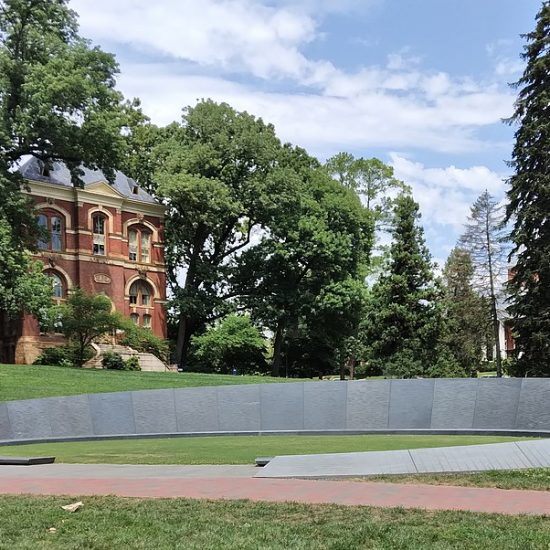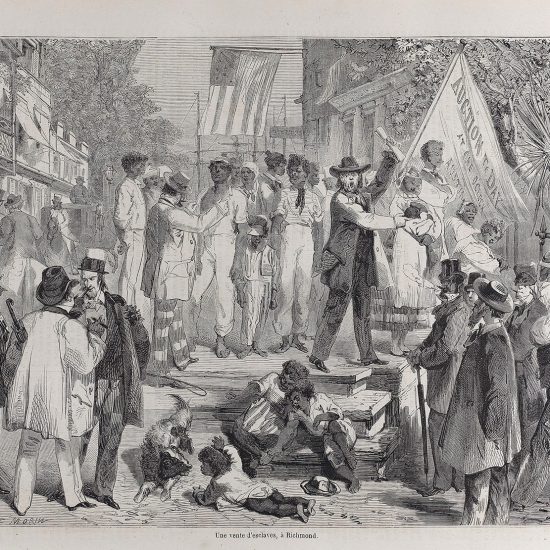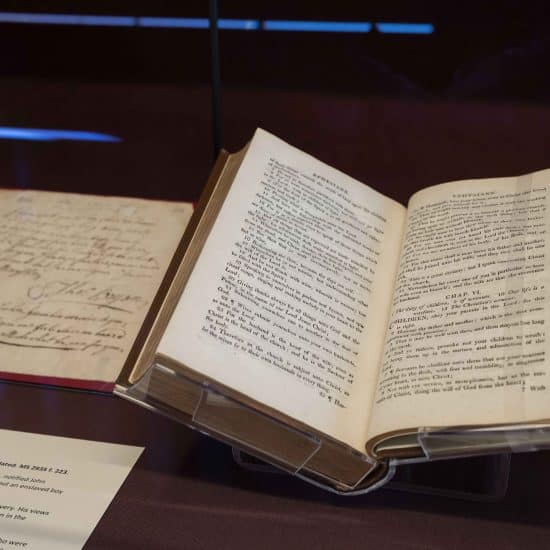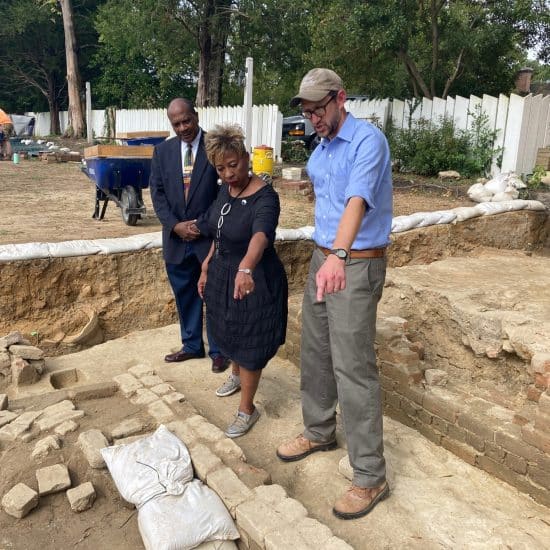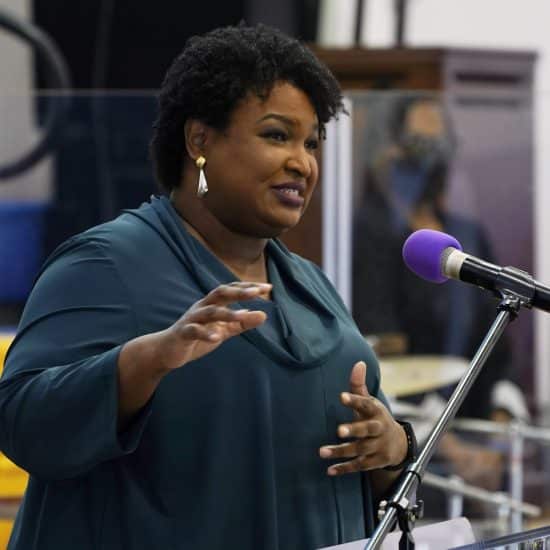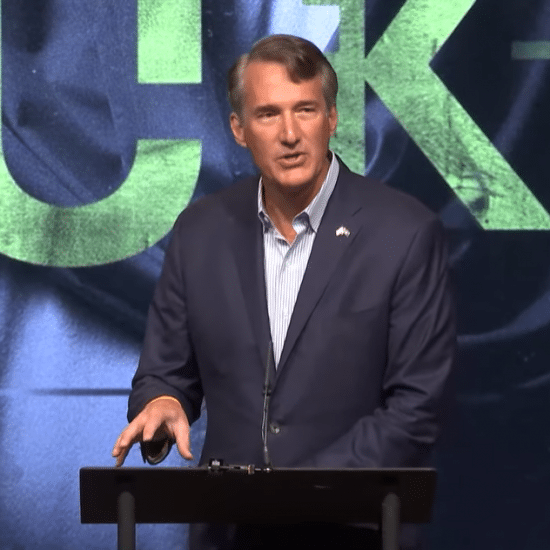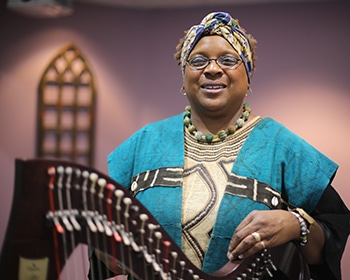
RICHMOND, Va.—How do an abusive childhood, Woman’s Missionary Union involvement and harp music merge into a ministry aimed at addressing domestic violence issues? For Jocelyn Henry-Whitehead, it’s the story of her turbulent growing-up years being transformed into practical ministry geared toward others who suffer the trauma of domestic violence.
“I literally was born into domestic violence,” Henry-Whitehead quietly reflected. “My father was a pastor; my mother was a pastor’s wife. I grew up in Baltimore, Maryland, and our home was just total chaos.
“Every day, I always walked on eggshells as a child,” she acknowledged, “being anxious, ashamed and feeling embarrassed.”
Noting that her family “lived right in the church parsonage,” Henry-Whitehead said, “Domestic violence was right next door to the church. We would come out of the house and then go into the church and hear my father preach the Word of God. It was very challenging growing up in that environment.”
As a child, she recalls playing the piano to help comfort her mother who often was sad and depressed. She said her mother taught her and her brother to sing “O How I Love Jesus” amid the struggles of their family life.
Affirming that her mother “was able enough to plant that seed in our spirit that Jesus loves us,” she said, “Now as an adult, that song really feeds me in times of distress or in times of joy.”
Henry-Whitehead later learned to play the harp, even converting her mother’s sewing chair that her father purchased in the 1950s into her stool for harp performances – a vivid reminder of her past struggles and eventual victory through Christ.
“Over the years, I have played the harp in hospitals, at the bedside and in the halls because it becomes comforting,” she said. She currently plays her harp at a geriatric hospital in Virginia and on the behavioral health floor of a local hospital, noting that those ministry opportunities have “brought additional comfort to me.”
When she left home for college, “I tried to find the furthest place that I could go for college and so I came to Richmond to Virginia Commonwealth University to do my undergraduate work and decided that I was not going back home after that.”
Life Comes Full Circle
Her plans abruptly changed during her senior year at VCU when her mother was diagnosed with breast cancer and she decided to move back to Baltimore to be with her mother. Another unexpected change came when a friend told her that the Baltimore City Police Department was looking for minorities and females to fill available police officer positions.
“I applied and got the position,” Henry-Whitehead recounted. “When I got on the street as a police officer, the calls that I was handling were domestic violence calls. So it went from the police coming to my house to the part where I was the police officer coming to someone’s house for domestic violence. It just seemed like it was going full circle.”
While she was in college, she met her future husband who was planning to go to law school. “I said to myself, ‘I can be an attorney’s wife,’” she reflected.
But a year after they got married, “my husband told me he had gotten a call to the ministry and fear struck me because I knew that my dad was a pastor, a minister and what I had come out of,” she said. “It was just hard for me to think that I could possibly be going back into that cycle with him.”
As she and her husband, Robert, approach 40 years of marriage, God has turned her role as a pastor’s wife into ongoing ministry opportunities. “We have to become who God calls us to be,” she emphasized. “We have to be the light of the world and we have to meet people where they are in order to even spread the Word of God to them.”
Pursuing Practical Ministry Efforts
Over the years as a police officer, educator, administrator and pastor’s wife, Henry-Whitehead said, “I’ve seen how domestic violence impacts the community and impacts students.” One of her primary goals is to not only share information about domestic violence issues but practical ministry responses as well.

Jocelyn Henry-Whitehead, who grew up in a pastor’s home wracked by domestic violence, now serves on Woman’s Missionary Union of Virginia’s Hope Team: Domestic Violence. In that role, she seeks to help educate, equip, encourage and empower others who are suffering the trauma of domestic violence. (WMU photo by Pam Henderson)
Through her involvement in Sisters Who Care, a resource for African-American congregations through Woman’s Missionary Union of Virginia, Henry-Whitehead serves on WMUV’s Hope Team: Domestic Violence. It is one of three WMUV Hope Teams that also address the issues of mental health and human trafficking.
“Domestic violence is not only a woman’s issue but it’s a man’s issue too. It’s a children’s issue; it’s a family issue,” Henry-Whitehead noted. In her role with WMUV’s Hope Team, she has the opportunity to speak about domestic violence awareness in churches and conferences across Virginia.
“Now as a pastor’s wife, I even see that I have a role and a platform not only in the African-American community but I have a voice to share,” Henry-Whitehead said. She has served alongside her husband at New Zion Baptist Church in Williamsburg, Va., for the past 28 years.
Earning her master’s, educational specialist and doctorate degrees from the College of William & Mary, Henry-Whitehead’s dissertation was titled, “A Study Exploring the Educational Needs of African-American Pastors’ Wives Within Baptist Congregations.”
“While I thought that my dissertation was about African-American pastors’ wives,” Jocelyn said she has since discovered that it helped “give me the voice to extend myself to the community and the needs of the community.”
Speaking For Those with No Voice
Motivated by the memories of her traumatic childhood, she said her family often felt virtually homeless “because we had to get out of our house if things were just so heated. We would oft times go to police precincts for protection and we’re talking the ‘60s and the ’70s and they’d just send us back home.
“My mother was one of 12 and so she would oft times ask for members of her family who were in the area if they would house us; if we could just stay there for a while,” she said. “I can distinctly remember that my mother would get us up at like 4 o’clock in the morning” to catch the bus from the west side of Baltimore and get back close to their neighborhood “so we could walk to school as if everything was normal.”
“I grew up really knowing how to put the façade on and fake it, if you will, just because that’s what I felt that I had to do,” she added. “My father was well known in the community and so we did what we had to do. It was a struggle.”
Recalling one stretch when they were out of their house for months, Henry-Whitehead said, “I remember that one of my cousins, she’s a second cousin to me, she worked in the cafeteria in my elementary school. Every time I would come through the line, it was like she would give me an extra scoop of mashed potatoes because it seemed like she knew that I was a hungry child.”
Looking back on her troubled family life, Henry-Whitehead candidly shared, “What I really think is that if my mother and father had known better, they would have done better. If they knew the impact to my brother and myself, they would have done differently.
“It’s really a matter of heightened awareness, it’s a call to knowledge,” she said. “I really do think that God has called us this way to influence the world and to look at missions from the standpoint of actually what’s happening in the world that surrounds us.”
For Jocelyn Henry-Whitehead, that means pursuing every available opportunity “to have a voice for those who might not have a voice.”

